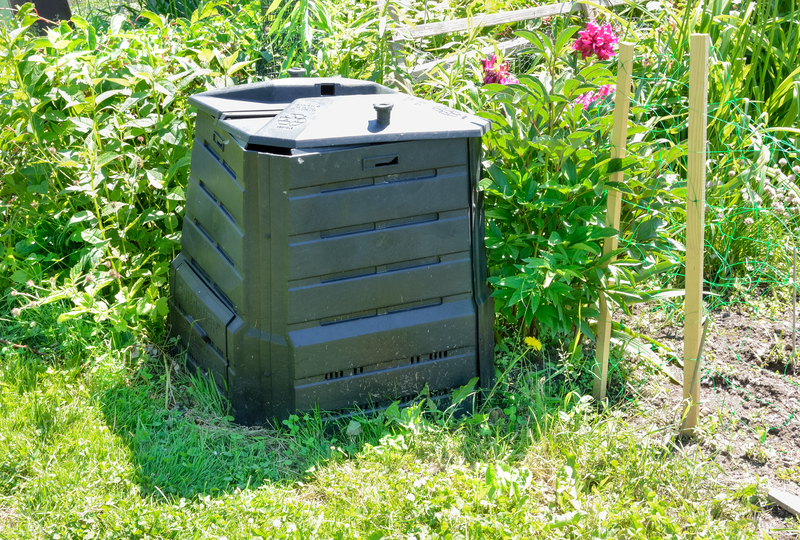Corporate Impact on Waste Reduction
Posted on 08/09/2025
The issue of waste reduction has gained significant attention in recent years, affecting not only individuals but also businesses. Corporations, due to their scale of operations, can have a substantial impact on waste reduction efforts. However, this influence can be a double-edged sword - either contributing to the problem or offering innovative solutions. This article will explore the various ways in which corporations impact waste reduction, the challenges they face, and the strategies they employ.
The Corporate Footprint
Corporations generate a considerable amount of waste through their production processes, packaging, and day-to-day operations. This waste can take various forms, including solid waste, liquid waste, and greenhouse gases. The scale at which many corporations operate means even minor inefficiencies can result in large quantities of waste. For companies in manufacturing, retail, and even the service industry, waste can constitute a significant operational challenge and a critical focal point for sustainability efforts.

Strategies for Waste Reduction
Innovative Packaging Solutions
One of the most visible impacts corporations have on waste reduction is through packaging. Traditional packaging often involves non-biodegradable materials like plastic. However, many companies are turning to eco-friendly packaging alternatives. For example, some corporations are adopting materials that are compostable or recyclable, while others are working on reducing the amount of packaging material used.
Operational Efficiency
Streamlining operations is another important strategy. By optimizing supply chains and reducing inefficiencies, companies can significantly cut down on waste. Techniques such as Lean Manufacturing and Six Sigma focus on eliminating waste at every step of the production process, from raw material procurement to product delivery.
Corporate Social Responsibility (CSR)
CSR initiatives often encompass various aspects of environmental sustainability, including waste reduction. Many corporations have integrated CSR into their core business models, setting aggressive targets for waste reduction and promoting environmentally-friendly practices both internally and externally. For instance, companies like Unilever and Patagonia have been at the forefront of such initiatives, regularly publishing their progress and encouraging other businesses to follow suit.
Technological Innovations
Advancements in technology offer new avenues for waste reduction. Artificial Intelligence (AI) and Internet of Things (IoT) technologies are being used to monitor and manage waste more efficiently. For instance, sensors can track waste production in real-time, offering insights into how and where waste can be minimized.
Challenges to Waste Reduction
Despite the promising strategies, several obstacles may hinder corporate efforts towards waste reduction:
- Cost: Implementing new waste reduction technologies or processes can be expensive, making it challenging for smaller companies.
- Regulation Compliance: Different regions have different regulations regarding waste management. Navigating these regulations can be complex and resource-intensive.
- Cultural Resistance: Changing established operational procedures often meets resistance from employees accustomed to traditional methods.
Pros and Cons of Corporate Waste Reduction
Like any significant initiative, corporate waste reduction has its benefits and drawbacks:
Pros
- Environmental Benefits: Reduced waste means less pollution and a smaller carbon footprint.
- Cost Savings: Efficient waste management can result in cost savings in the long run.
- Brand Reputation: Companies committed to sustainability often enjoy enhanced reputations and greater customer loyalty.
- Regulatory Compliance: Adhering to waste reduction regulations minimizes the risk of legal penalties.
Cons
- High Initial Costs: The initial investment in new technologies and processes can be significant.
- Complex Implementation: Changing established practices can be challenging and time-consuming.
- Inconsistent Regulations: Navigating the various waste management regulations across different regions can be cumbersome.
Tips for Effective Waste Reduction
- Conduct Audits: Start with a thorough audit to identify where most waste is generated.
- Set Clear Goals: Establish clear, measurable waste reduction targets.
- Engage Employees: Foster a culture of sustainability within the organization.
- Leverage Technology: Utilize technological solutions for monitoring and managing waste.
- Collaborate: Partner with other organizations and stakeholders for shared waste reduction initiatives.

Key Takeaways
- Corporations have a significant impact on waste reduction due to their scale and resources.
- Various strategies, including innovative packaging, operational efficiency, and technological advancements, can aid in waste reduction.
- Despite challenges, the benefits of waste reduction far outweigh the drawbacks.
- Effective waste reduction requires a comprehensive approach involving audits, goal setting, employee engagement, and technology.
Conclusion
Waste reduction is a critical aspect of corporate social responsibility and environmental sustainability. While challenges exist, the potential benefits for both the environment and the business make it a worthwhile endeavor. By adopting innovative solutions, engaging employees, and leveraging technology, corporations can significantly reduce their waste footprint. It's a shared responsibility that calls for collaboration and consistent effort, aiming for a sustainable and waste-free future.






